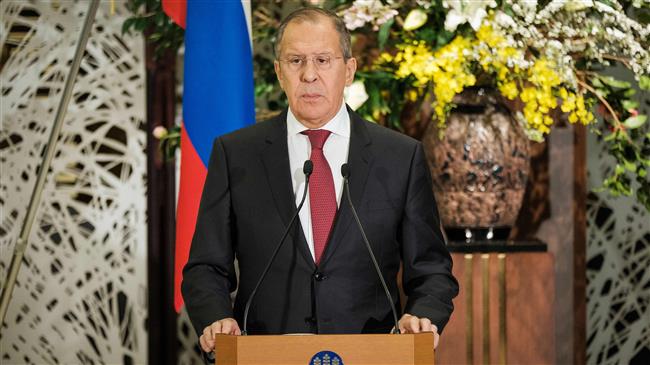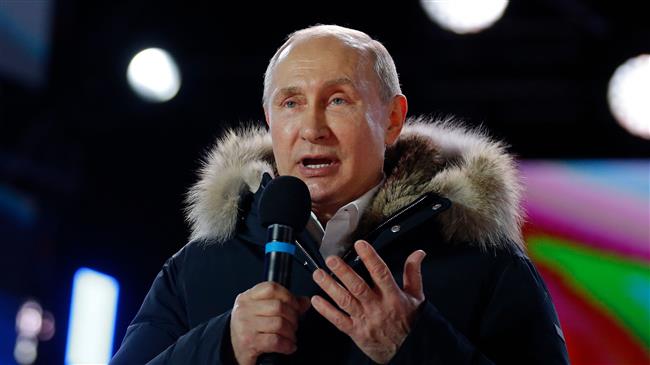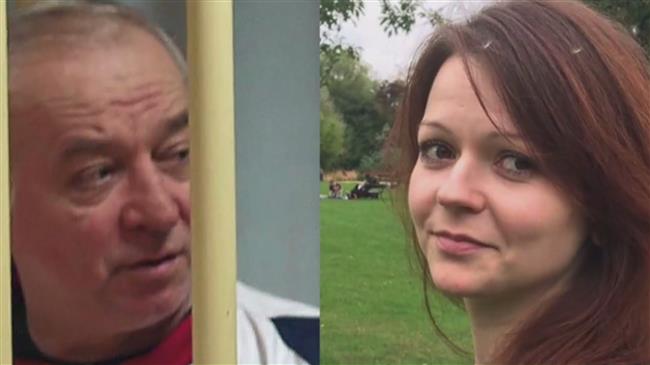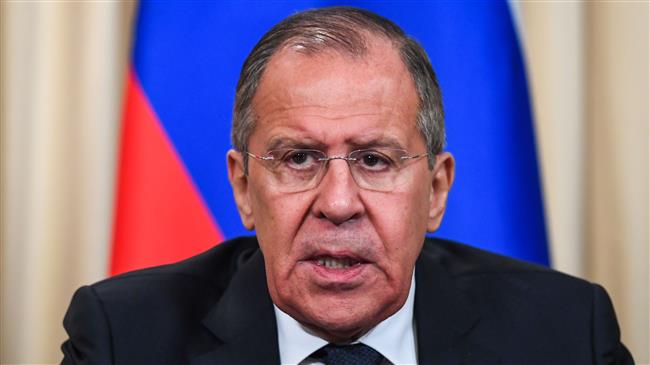Lavrov warns Britain against more anti-Russia measures
Russia’s top diplomat warns Britain against more anti-Moscow measures over allegations of its involvement in the poisoning of an ex-spy and his daughter, vowing that his country would “hit back” if London fails to stop such a trend.
“If the British government continues taking some anti-Russian measures, we will hit back under the principle of reciprocity,” Foreign Minister Sergei Lavrov said during a visit to Japan on Wednesday.
He urged the British government to “respond calmly” over the incident on March 4, when Sergei Skripal and his daughter, Yulia, were found unconscious outside a shopping center in the town of Salisbury in southern England. The two are still in coma.
The 66-year-old would sell secrets to Britain during the Soviet era and was handed over to London in a 2010 spy swap.
The UK says the nerve agent Novichok had been used to poison the pair, claiming only Russia had the capability, motive and intent to be behind the attack.
Moscow has vehemently denied any involvement, saying the substance could have originated from the countries studying Novichok, including the UK itself, Slovakia, the Czech Republic and Sweden.
Russian President Vladimir Putin has called the UK’s allegations “absurd” and “nonsense.”
On Tuesday, the head of the OPCW chemical watchdog said it would take two to three weeks to complete laboratory analysis of samples taken from the poisoning.
Britain expelled 23 Russian diplomats and their families in the aftermath of the attack, prompting Russia to send back a same number of their British counterparts.
Lavrov’s warnings came after a spokesman for UK Prime Minister Theresa May said London was “actively considering” other measures.
A team of experts from the Organization for the Prohibition of Chemical Weapons (OPCW) are in the UK to collect samples of the alleged Soviet-made nerve agent.
The OPCW said Tuesday that it would take up to three weeks to complete laboratory analysis of the samples.
The issue has led to the further deterioration of relations between Moscow and the Western states.
The European Union has sided with London in the case, but US President Donald Trump has stopped short of making any comments.
VIDEO | Iran-Syria: For Resistance
Qassam Brigades claims killing 3 Israeli troops in northern Gaza
More alive than ever: Sayyed Hassan Nasrallah's legacy grows stronger in martyrdom
Occupation of Syria’s highest peak Mount Hermon part of ‘Greater Israel’ project
Iran: Syrian people will decide their future without foreign interference
IRGC says Iran’s power exceeds borders, warns enemies to adjust themselves
Dozens detained, several wounded in Israeli raids in West Bank
‘Ethnic cleansing’: Hamas blasts Israeli attacks on Gaza hospital amid intl. silence














 This makes it easy to access the Press TV website
This makes it easy to access the Press TV website